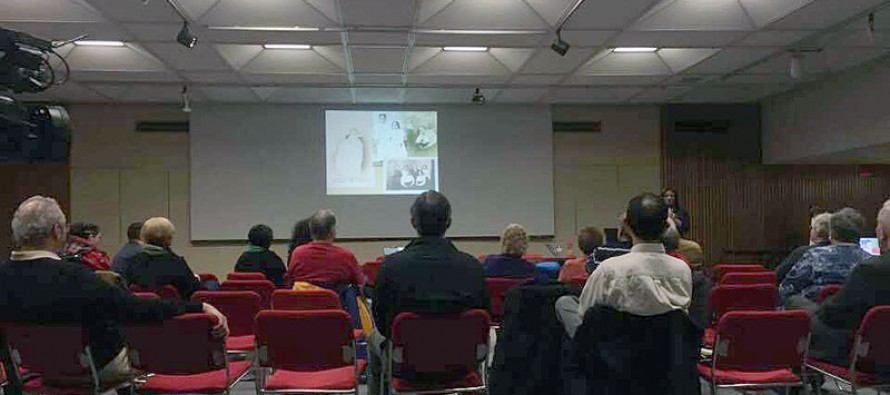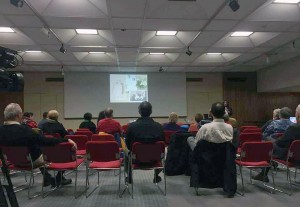Black history is local history

Windsorites are learning about black history.
The Windsor Public Library and the Essex County branch of the Ontario Genealogical Society held a meeting in honour of Black History Month with guest speaker Irene Moore Davis.
Moore Davis is a Canadian historian and contributor to research, and teaching Black History in Windsor and Essex County.
The meeting covered the history of many American slaves who came to Windsor-Essex looking for freedom through the Underground Railroad. Thousands of slaves escaped to Canada this way.
The Underground Railroad movement started before 1780. American slaves followed the North Star to find freedom in Ontario.
They used railroad terms as code words. The people who helped slaves escape were called “conductors” and fleeing refugees were called “passengers” or “cargo.” Places to rest were called “stations.” Songs were used by slaves as a tradition from Africa. Singing served many purposes such as providing rhythm for repetitive manual work, inspiration and motivation. Songs were also used as tools to remember and communicate since the majority of slaves could not read. Songs used biblical references and analogies of biblical people, places and stories comparing them to their own struggles as a slave. For example, “being bound for the land of Canaan” for slave owners could mean ready to die and go to heaven, but to a slave it meant ready to go to Canada.
Moore Davis told the audience those who came here stayed near the border to find family members and also find jobs in areas like Windsor, Amherstburg and Chatham-Kent. More than nine per cent of the Windsor population was of African descent in 1828. Amherstburg had 100 black people living there. In 1835 white people were wary of black people living in their community so they petitioned Upper Canada to leave troops at Fort Malden so they would not be left defenceless against black residents. In August of 1833, slavery was abolished throughout all British colonies by the Imperial Act, which became effective in August 1834.
“During Black History month we most acknowledge the pivotal people of African descent and the role they have made in Canada since the 14oos,” said Moore Davis.
During the era of the Underground Railroad any U.S. marshal who did not arrest a runaway slave could be fined $1,000.The runaways would be arrested and stripped of all civil rights.
Marie Charbonneau is a Windsor-Essex County Branch member of the Ontario Genealogical Society and believes the meeting is a good opportunity for members to research and provide guidance to all those hoping to learn more about the genealogical roots of the area.
“When you are doing research you can follow a family for quite some time and learn more about them,” said Charbonneau.
If you want to learn more about Black Canadians in Windsor and surrounding areas visit amherstburgfreedom.org.



